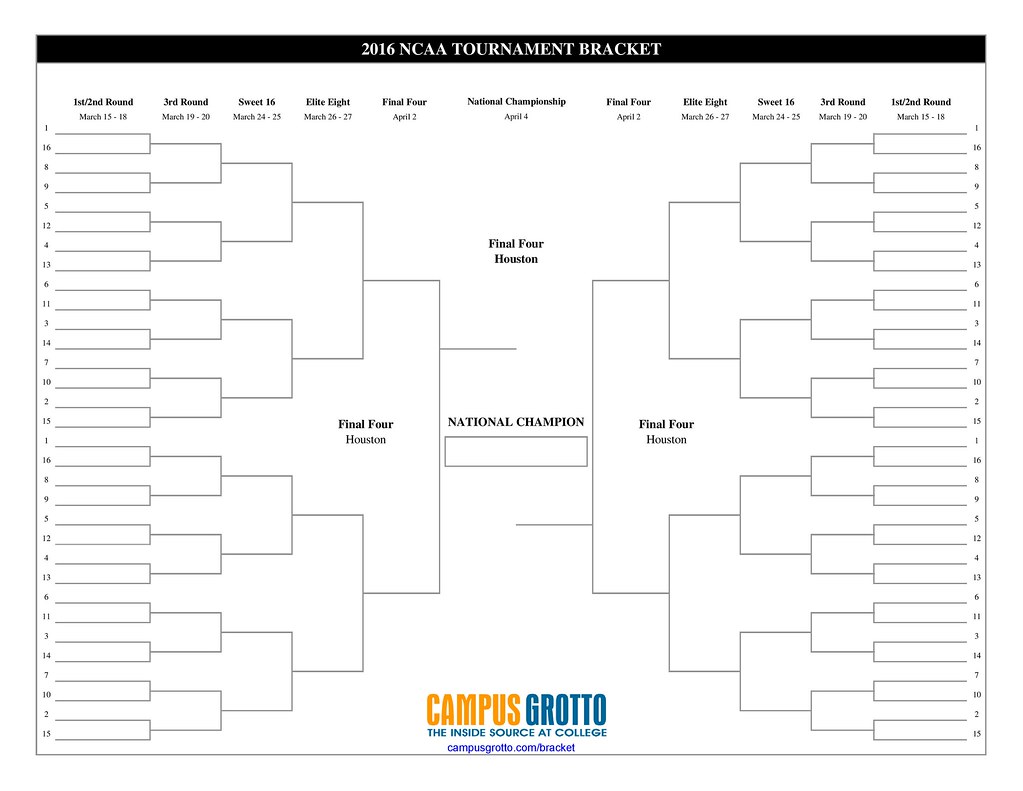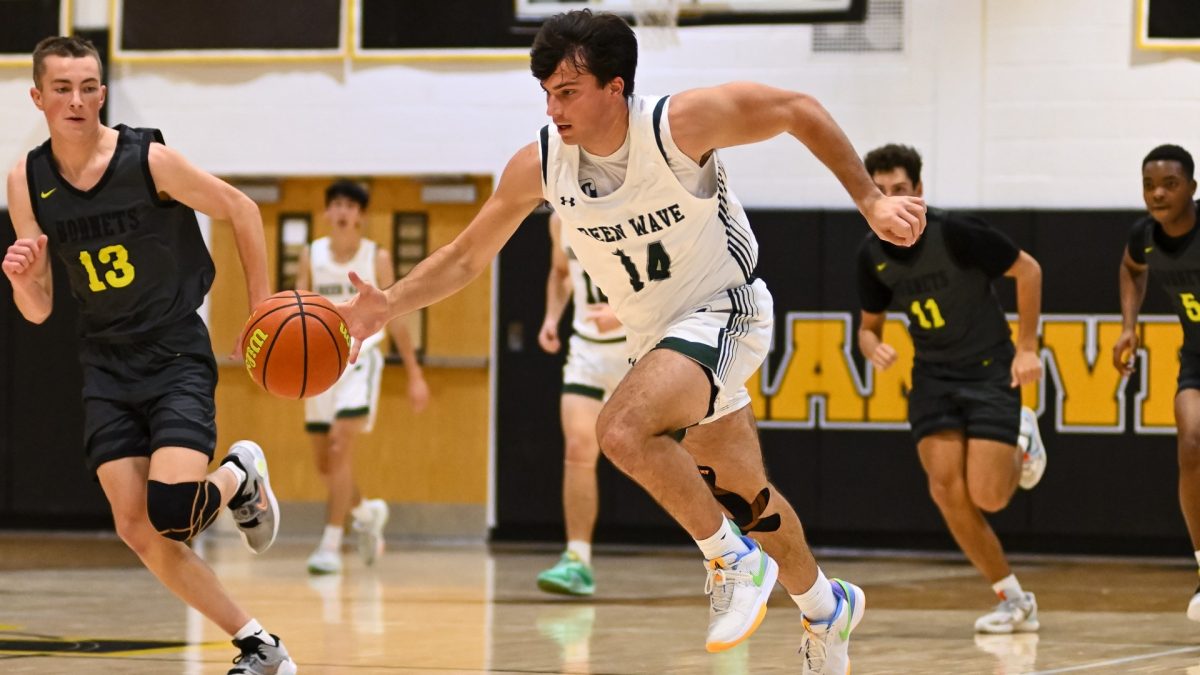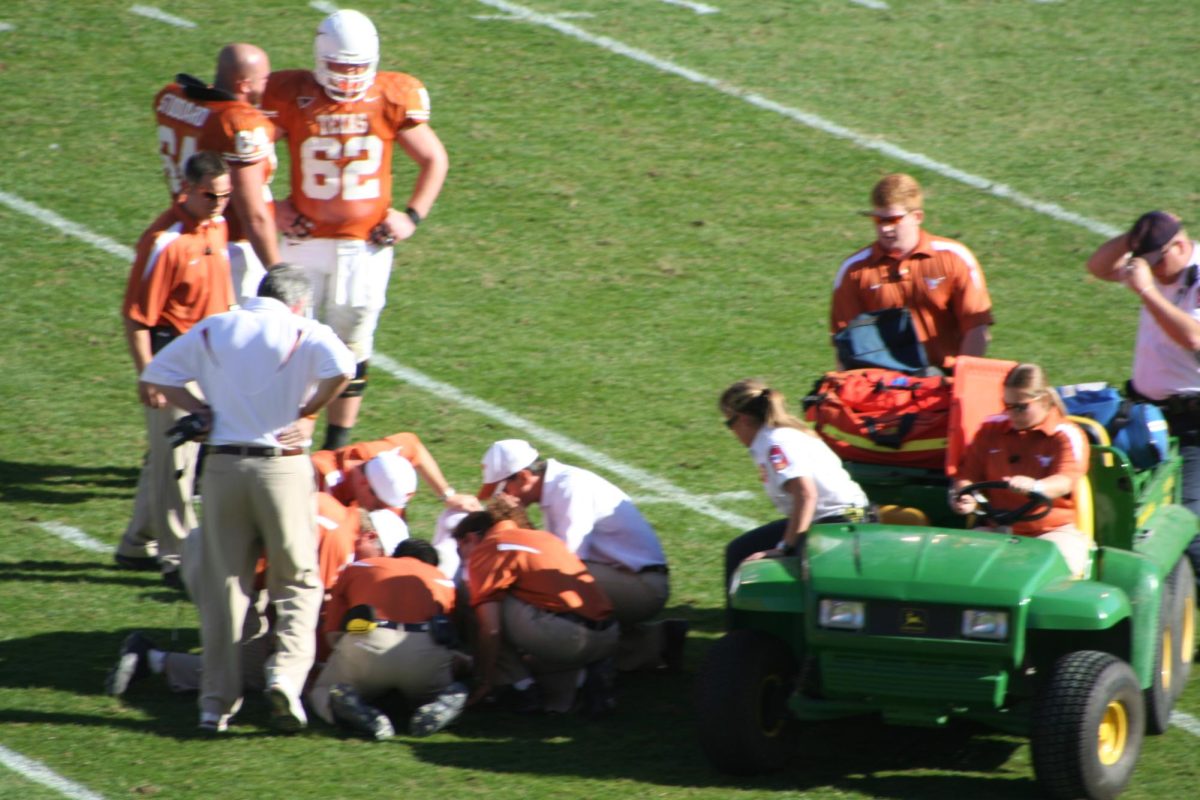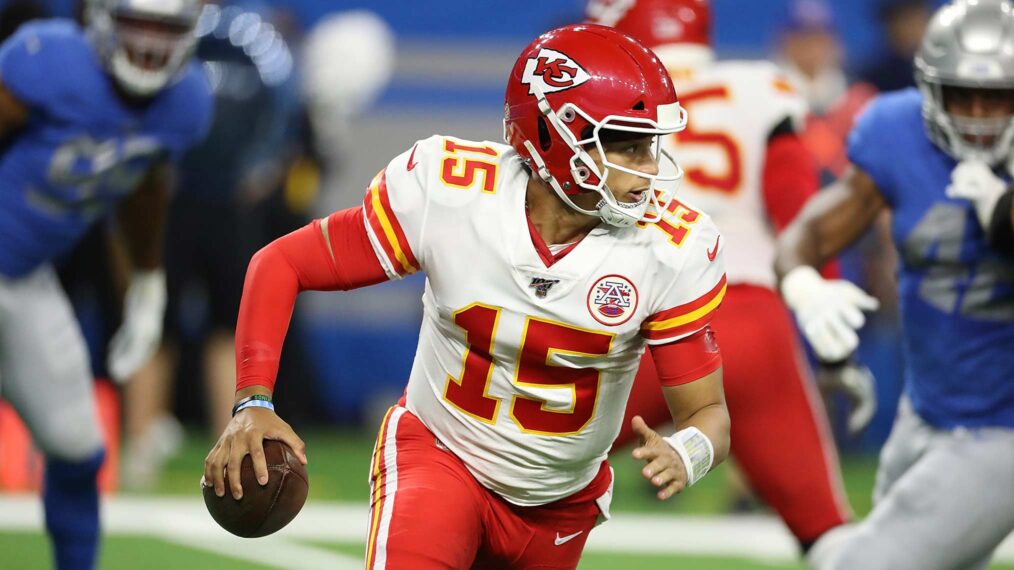Examining the true benefits of high school sports has been an ongoing topic for decades. Some believe sports are a great time-consumer to keep teenagers out of trouble and encourage social bonding. However, others recognize the harm that sports can bring, especially sports-related injuries. It is essential to address both sides and understand the claims that educators and scientists make before students can confidently answer if participation in high school sports is morally and physically beneficial to the student-athletes themselves.
Pros:
Athletes at the high school level are quick to credit spots as to why they hold a more robust sense of self-confidence to be social and reach out to others. Most athletes grow their social lives through the teamwork of their sport and utilize the common goal of succeeding to help form strong and lasting friendships. The camaraderie of any high school sports team is easy to observe. After all, the fundamental objective of team sports is to work with other players to prevail over the opponent, which can be very rewarding. A recent example of the relationships that sports create took place in Game Three of the NCAA Baseball National Championship between LSU and Florida on June 26th. In the top of the 4th inning, Cade Beloso singled on a ball in the right-center gap with two outs to score Alex Milazzo from first base. Milazzo evaded the catcher and landed awkwardly on the catcher’s shin, fracturing it. Fans instantly empathized with the junior redshirt catcher, wondering how he would celebrate a victory with a boot and crutches. LSU went on to win the game 18-4, and, to the surprise of 24,878 fans, LSU’s star pitcher Paul Skenes instantly bent down to carry Milazzo on his back and sprinted into the dog pile to celebrate with his teammates. The pure enthusiasm and sportsmanship of this moment took the college baseball world by storm, and Skenes became an instant, national fan-favorite. If a reporter were to ask Skenes about the situation, he would likely credit the sense of brotherhood and camaraderie that baseball taught him from a young age. Below is a link that highlights the special moment.
https://ftw.usatoday.com/2023/06/lsu-college-world-series-alex-milazzo-paul-skenes-video
In addition to sportsmanship and leadership qualities, the National Federation of State High School Associations (NFHS) also credits overcoming adversity and a foundation in physical fitness as two other benefits of participating in athletics at the high school level. Being part of a team loss or failure can motivate athletes to come back stronger and work harder together to achieve success. Delbarton School values sports because they help students embody the school’s motto, “Succisa Virescit.” This is Latin for “that which gets cut down grows back stronger.” The difficulties and failures that all individuals endure give them a more realistic view of their abilities and help them set goals, making them more motivated. High school sports also teach athletes that they must be accountable for mistakes, and coaches instill strong discipline in athletes’ minds so that players acknowledge their mistakes and work to prevent them from happening often. Delbarton parents agree, adding that sports are a significant part of their children’s lives, and Delbarton sports, specifically, teach their young men lessons and leadership skills that are hard to find elsewhere.
Finally, one primary strategy in sports is to achieve a higher level of strength and physicality than the opponent. When coaches teach high school athletes that superior fitness gives them significant advantages, players often workout and exercise to achieve the goal. Being an athlete at the high school level allows students to experience the rigorous demands of high-level sports while enabling them to discover a passion for maintaining health and fitness. Since America is known as one of the least healthy places in the world regarding diets, teens routinely exercising for sports sets an excellent example for themselves and will likely help them develop good nutrition habits for the rest of their lives. NFHS reports that students are more likely to stay in shape from the physical requirements of sports and build better relationships with teammates and coaches on and off the field.
Cons:
At times, an unhealthy balance of sports can take away from a student’s academic life. As the years progress, it is more common to see a student give up his academic career and rely on sports to receive a college education through a scholarship. Rarely is the athlete at the level where academics have little importance to the coaches recruiting the player. It is more likely that athletes rely on sports too heavily and end up getting injured or failing to reach the academic requirements to play in college. High school sports can be harmful because they promote a way to escape the rigorous academic life of a regular student.
Secondly, sports can be hazardous and put students at risk of serious injury. Recent studies have revealed that taking constant blows to the head and neck as a football player can easily lead to brain damage. Chronic Traumatic Encephalopathy, or CTE, is “a progressive and fatal brain disease associated with repeated traumatic brain injuries (TBIs), including concussions and repeated blows to the head” (Alzheimer’s Association). One of the leading causes of CTE is the repeated head trauma experienced by football players. This poses a severe safety risk to teens, as the human brain is not fully developed until approximately age 25. The issue of player safety in high school sports prompts parents and concerned adults to think twice about their children’s athletic careers and consider if the excitement of football is worth the health hazards it may involve. Also notable is that violence in sports can cause anger, fights, and even steroid use among athletes, jeopardizing users’ health.
Although many athletes will claim that sports positively influence their character, there is no conclusive evidence of this claim. When parents and high schools place their athletes in a suitable environment to succeed, such benefits may occur, but to say that sports build good character 100% of the time is far from accurate. In fact, select coaches who were once athletes often permit and encourage violence, swearing, and other bad habits in their athletes and assure them “it’s part of the game.”
Parents should consider safety risks, prioritize their child’s academics, and ensure professional coaching to give their teens the best chance to improve their discipline and character while participating in high school sports. After speaking with a few parents, the statements above are considered accurate. Each parent understands the importance of safety in high school sports and claims that sports can sometimes be dangerous despite their great rewards. The answer to the high school sports debate sits with the adults, and how they utilize their influence as parents to decide the success sports will bring to their child. Parents should look to raise academically-focused children with a passion for sports and pursue such activities with a healthy attitude. Of course, not every child may be interested in sports, but when utilized correctly, sports can provide teens with wondrous blessings that will last a lifetime.































